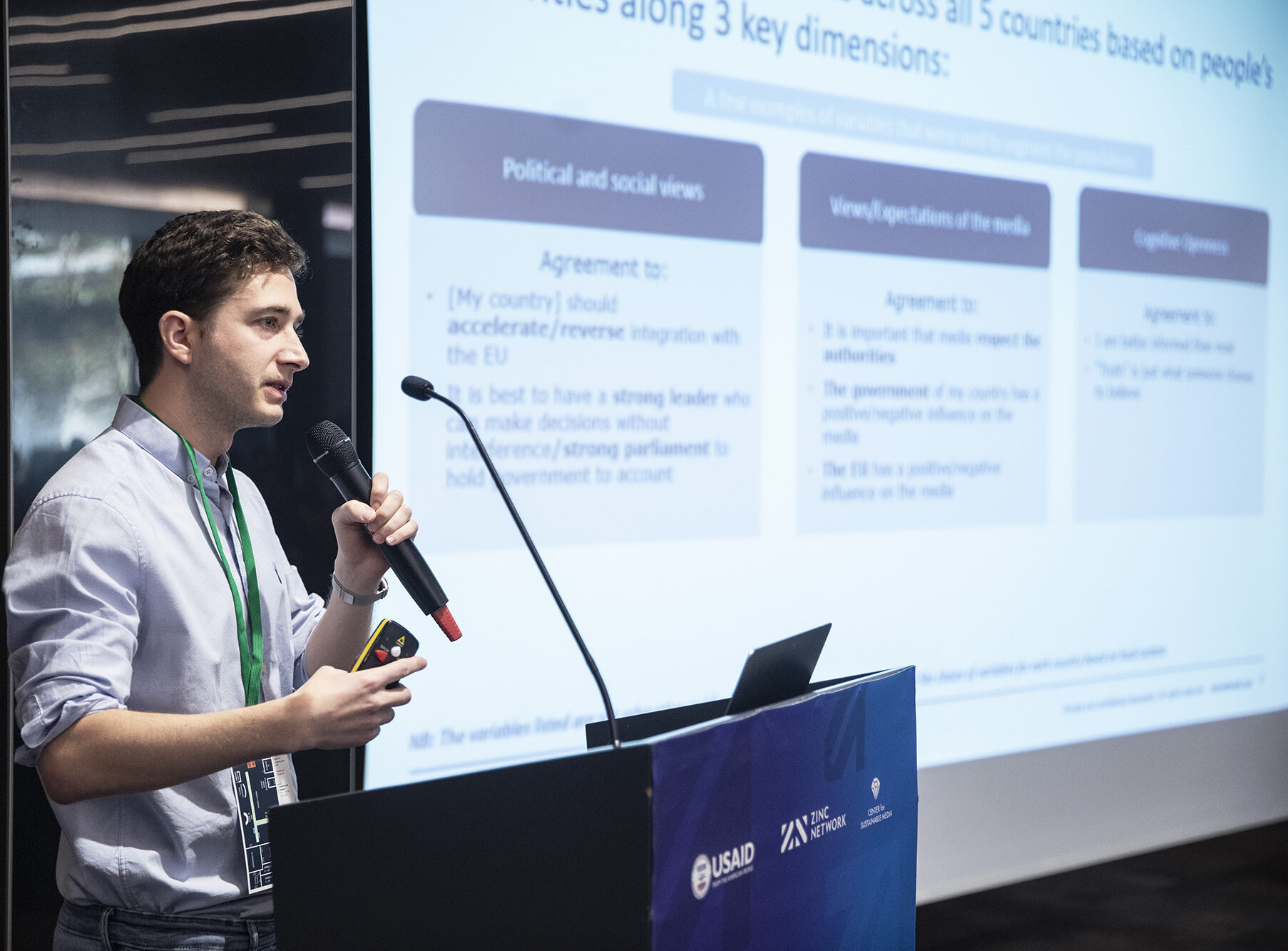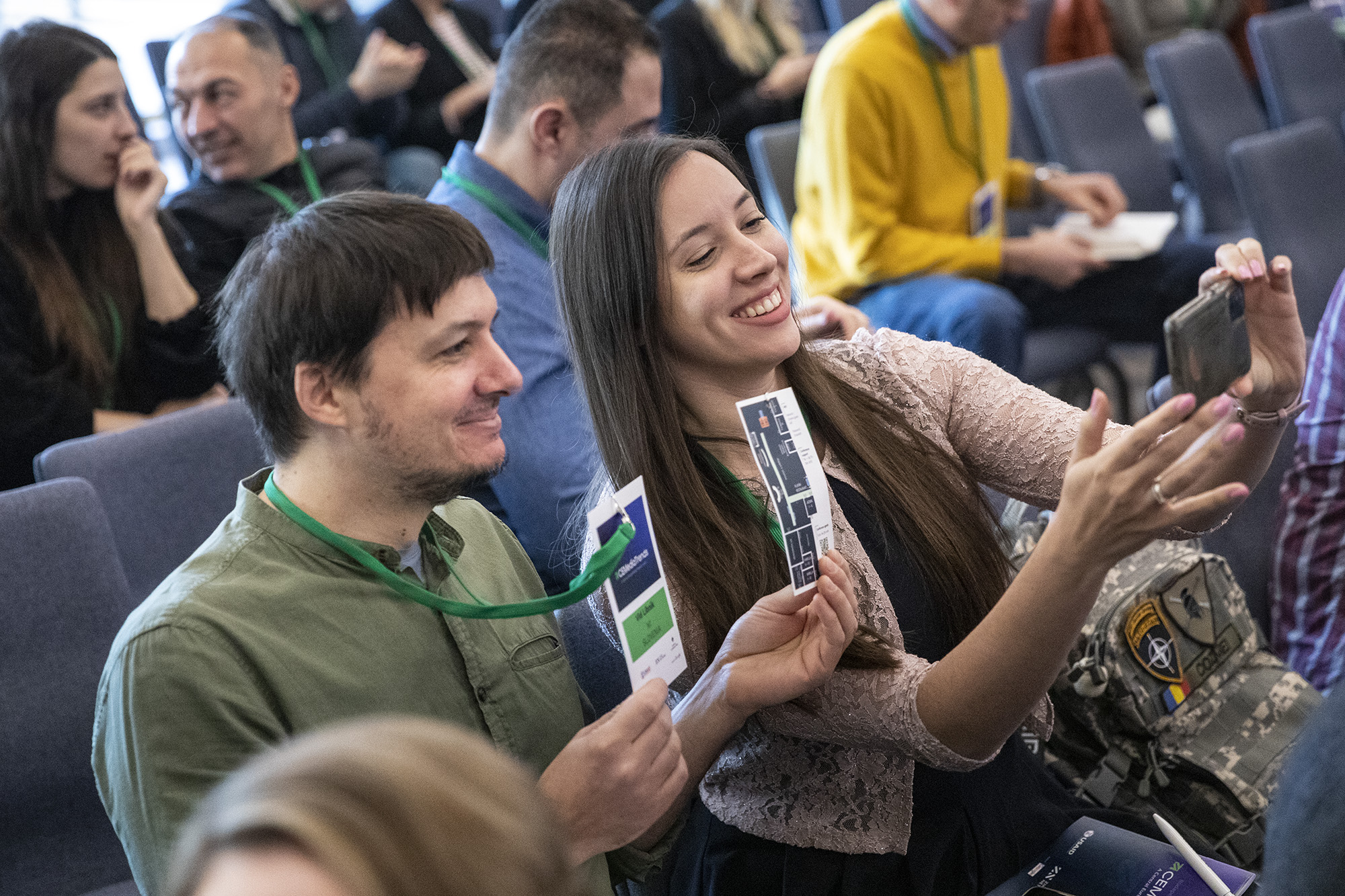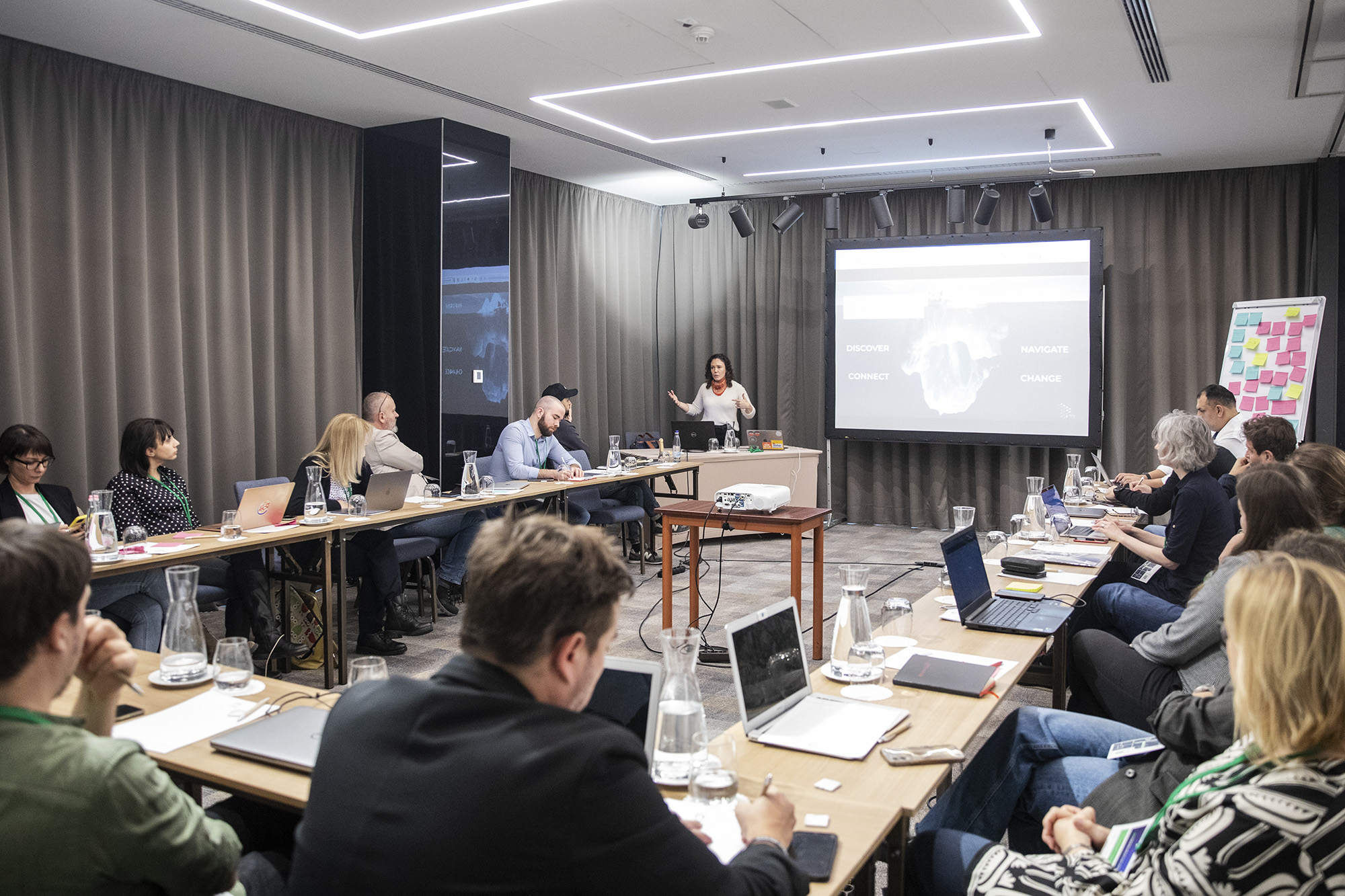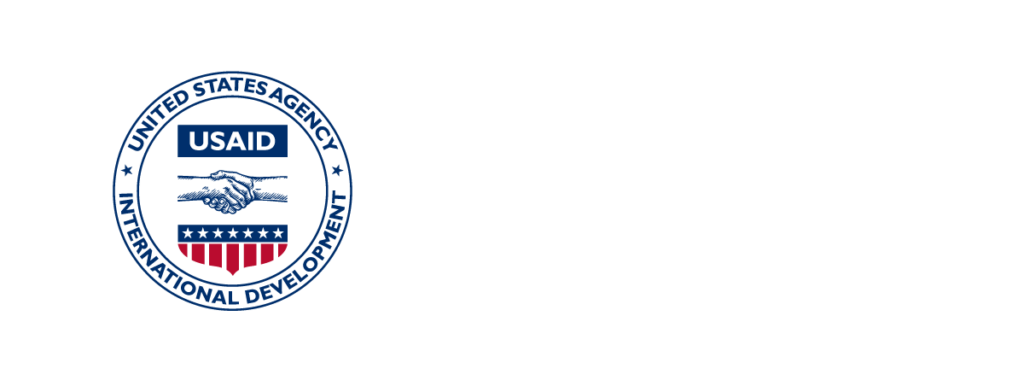CEMP’s media consumption survey reveals willingness to pay for unique, truthful media content
13 June 2024
- Giulia Magnani
- Research Manager, Zinc Network
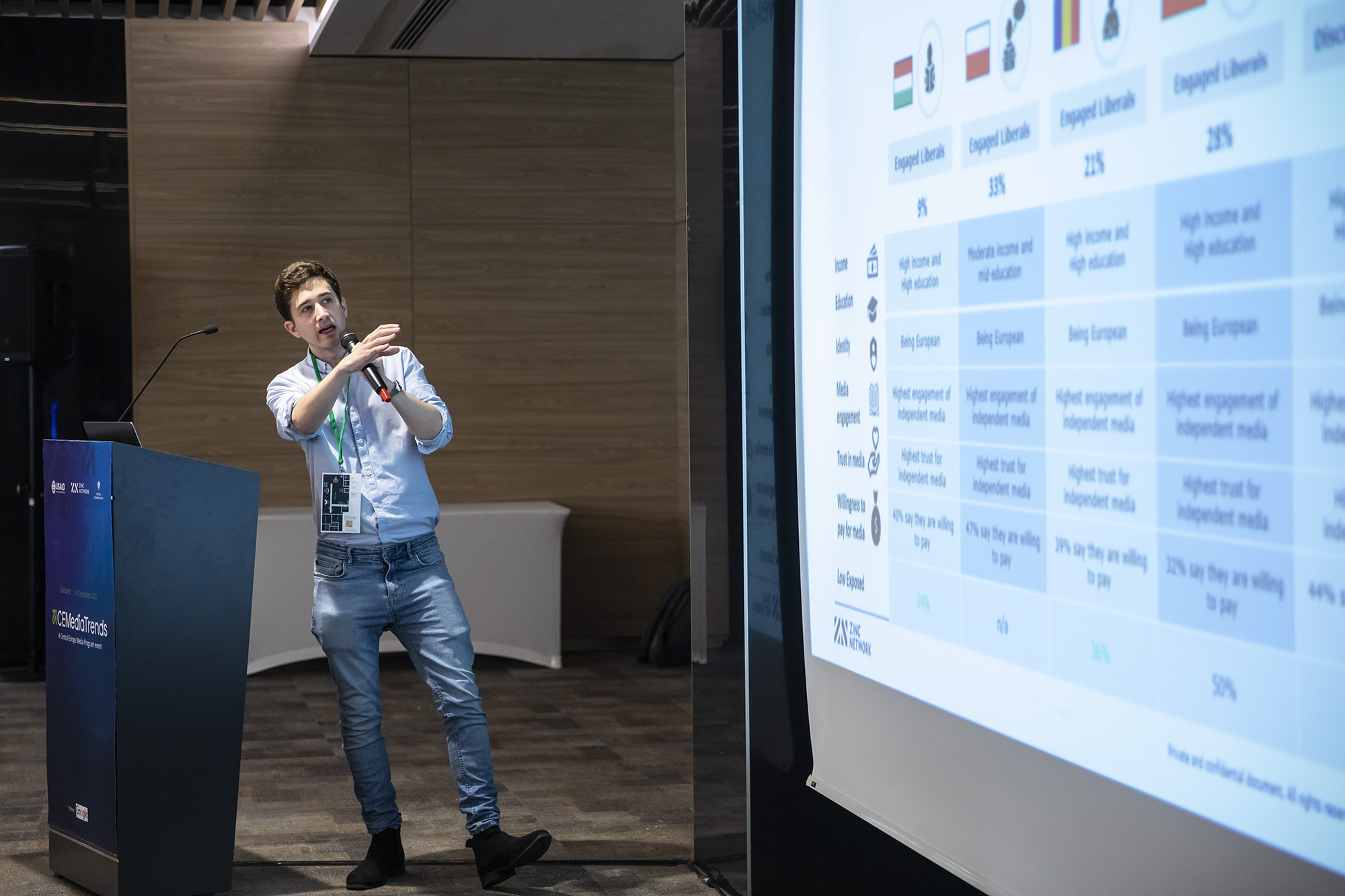
CEMP survey in five countries generates comprehensive dataset on media consumption habits and preferences in Central Europe
As part of the Central Europe Media Program (CEMP), Zinc Network conducted extensive online polling across all five participating countries: Bulgaria, Hungary, Poland, Romania, and Slovenia. The primary goal was to identify target audiences and grasp their media consumption patterns, aligning with the project’s broader objectives of growing independent outlets’ audiences and increasing their reader revenue. Zinc is now making the polling results and analysis of the findings available for download for use by researchers, media development practitioners, and media outlets in Central Europe.
Tailored presentations to CEMP partner media outlets in 2023 grew outlets’ understanding of their audiences and the potential for improved outreach. Most had never had access to quality, countrywide research. The polling data gave them access to demographic breakdowns of current and potential audiences that can also help them identify possible reader revenue opportunities. According to a senior manager at one of the partner media outlets, this was the sort of polling “we couldn’t and wouldn’t have done ourselves”, and it was backed up by “in-depth, thoughtful, interesting findings”.
The research aimed to answer specific research questions, including on current media consumption habits (favourite sources and channels), content preferences, motivations for media payment, and trust in information sources.
Approximately 2,000 respondents were sampled in each country to provide insights relating to these questions, resulting in one of the most comprehensive datasets on media consumption habits and preferences in Central Europe. The polling was conducted in February-March 2023.
To assist independent outlets in achieving the research objective and enlarging their audience base, Zinc Network conducted tailored cluster analyses of the respondents for each country. This process segmented the population based on familiarity with independent media, engagement levels, trust in such outlets, values, and cognitive openness (their willingness to accept new points of view).
The findings unveiled three distinct target groups in each country that independent outlets could effectively engage to expand their audiences and eventually increase reader revenue. The first group, typically the easiest to reach, comprised individuals with higher education, financial stability, and liberal political, social, and economic values. They showed a propensity for engaging with independent media and exhibited high levels of trust in them. The second reachable group included open-minded individuals favourable towards western institutions, displaying moderate trust in independent media but with room for increased engagement. Lastly, a third potential target was also identified, a less engaged audience characterised by openness to new perspectives and a willingness to reconsider their views.

The research then delved into each group’s demographics, preferred channels, and interests to inform both effective targeting and content strategy techniques. Moreover, it probed respondents’ current inclination to pay for online news content, revealing a significant untapped segment of individuals who are currently not paying but express willingness to do so in the future. Findings further revealed that to increase people’s likelihood to pay for content, outlets should focus on delivering content that is perceived as truthful, building a solid trusted reputation, and providing audiences with content and services that they cannot find for free.
Furthermore, the research indicated that while trust in independent sources of information surpasses that in non-independent sources, overall trust in media remains low across all countries. This highlights the imperative for independent outlets to intensify efforts in cultivating trust. In order to build trust with target audiences, independent outlets should aim to demonstrate that they publish honest reporting, that they are independent from the government, and that their work is aligned to serve society’s interests and not their own.
The comparative study for all five countries, Central Europe Media Program (CEMP) Research – Mapping audience opportunities for independent media, can be accessed here.
The individual country research can be accessed here:
- Media Consumption in Bulgaria
- Media Consumption in Hungary
- Media Consumption in Poland
- Media Consumption in Romania
- Media Consumption in Slovenia.
When making use of the research or citing the reports, please provide a link to this URL, and please cite the respective country or comparative research (see titles above).
This research was made possible by the support of the American people through the United States Agency for International Development (USAID). The contents of this report are the sole responsibility of Zinc Network and do not necessarily reflect the views of USAID or the United States Government.

